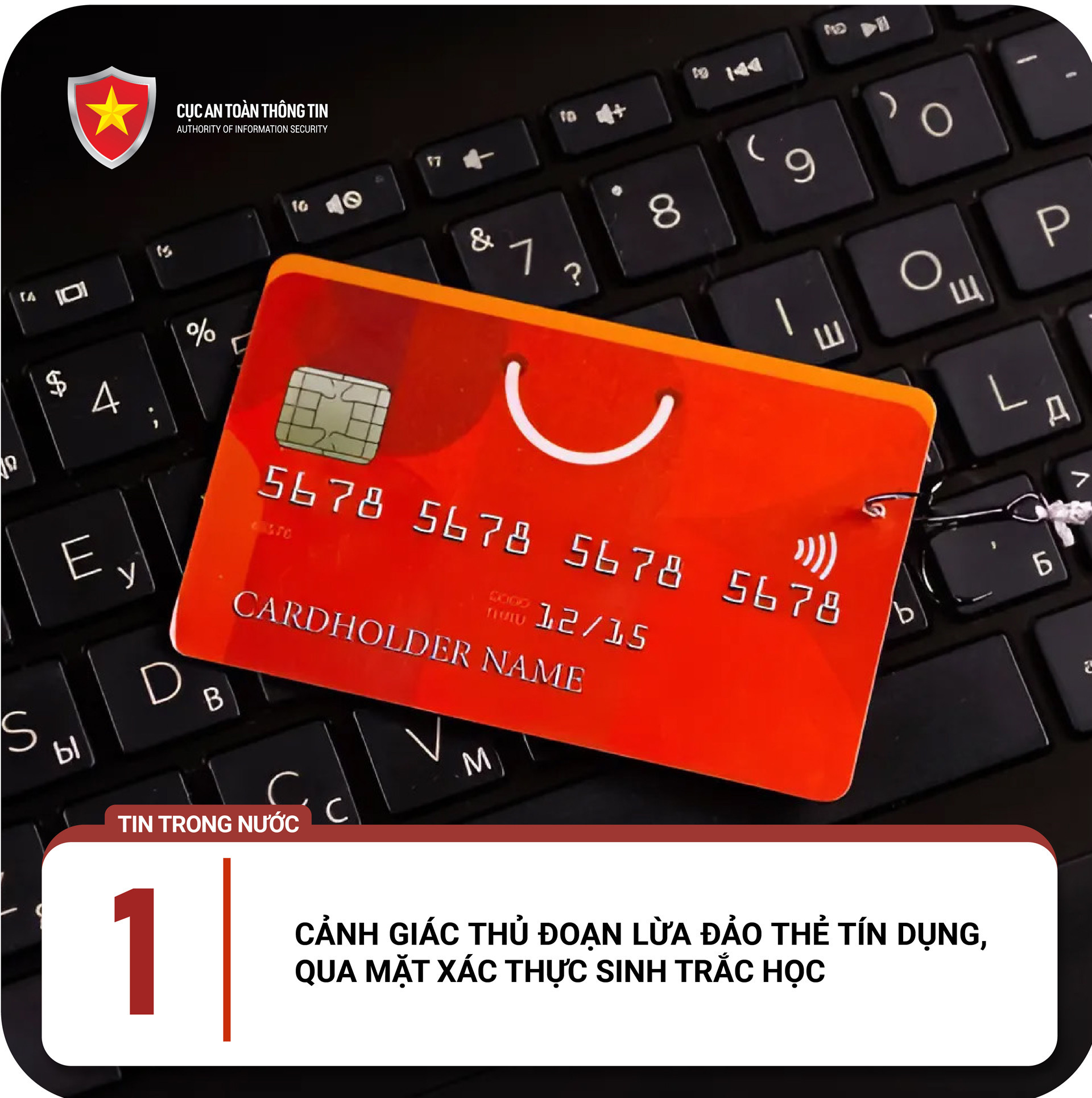
The Authority of Information Security (Ministry of Information and Communications) recently issued a warning about the increasing prevalence of fraud schemes targeting bank transactions in Vietnam. Highlighted in last week’s “Online Fraud Report,” the advisory aims to build public awareness amid the surge in sophisticated cybercrime tactics.
In response to the rising online fraud cases, the Ministry of Information and Communications has been collaborating with other governmental bodies to implement robust measures. Alongside technical solutions, public education has been prioritized as a key strategy to strengthen individual defenses against cyber scams.
Below are the three most common fraud tactics reported in Vietnam from November 11 to November 17, as outlined by the Authority of Information Security:
1. Credit card fraud and biometric authentication workarounds
Recent weeks have seen an alarming increase in scams involving credit cards and biometric authentication.
Fraudsters often impersonate bank employees, offering credit card limit increases or issuing fake refund notifications. They convince victims to provide sensitive personal information, such as account details, OTP codes, or credit card security codes (CVV), to steal money directly from their accounts.
Additionally, scammers are deploying advanced techniques to bypass biometric authentication systems. Victims are often lured into downloading malicious apps or visiting counterfeit websites, falling prey to these sophisticated tactics.
Safety Recommendations:
- Be cautious of calls claiming to represent banks offering online support.
- Do not share personal information, OTP codes, or credit card security details with unknown individuals.
- Avoid clicking on unfamiliar links or downloading unverified applications.
- Only input credit card details on verified, trusted websites.
2. Airline ticket scams targeting 2025 Lunar New Year travelers
Fraudsters have begun exploiting the high demand for airline tickets during the upcoming Lunar New Year.
They pose as official airline agents, offering discounted fares while pressuring victims to pay immediately to avoid cancellation. After payment, scammers sever communication and fail to issue tickets.
Another common tactic involves sending emails or messages claiming the recipient has won discounted tickets. When victims click on the provided links and enter their credit card information, their financial details are stolen.
Safety Recommendations:
- Always book tickets directly through official airline websites or verified agents.
- Contact airline customer service hotlines for assistance with bookings and payments.
- Avoid clicking on unknown links or downloading suspicious applications that may compromise your device’s security.
- Report suspected fraud to authorities or the online fraud reporting system at [canhbao.khonggianmang.vn](https://canhbao.khonggianmang.vn).
3. Fraudulent online medicine sales and insurance offers
Fraudulent schemes promoting unverified medicines and insurance products are rampant on social media platforms.
Scammers create fake social media accounts and groups, advertising so-called "miracle drugs" at prices ranging from a few hundred thousand to millions of dong. These products are often unverified and potentially harmful.
In addition, scammers entice victims with insurance schemes, promising monthly payouts. In a recent case, a woman in Thai Binh lost over 200 million dong after trusting two individuals who claimed to sell health insurance.
Safety Recommendations:
- Avoid joining social media groups offering medical services or selling medicines.
- Refrain from purchasing unverified medicines with unclear origins.
- Do not engage in online insurance transactions without thorough knowledge of the product.
- Protect personal and financial information by avoiding interactions with suspicious online offers.
The Authority of Information Security emphasizes the importance of public caution when navigating online financial services. In cases of suspected fraud, victims are urged to report incidents to relevant authorities or through the cybercrime alert platform at [canhbao.khonggianmang.vn](https://canhbao.khonggianmang.vn) for timely intervention and resolution.
By staying informed and adopting preventive measures, the public can collectively combat the growing threat of online fraud, ensuring safer interactions in the digital space.
Van Anh